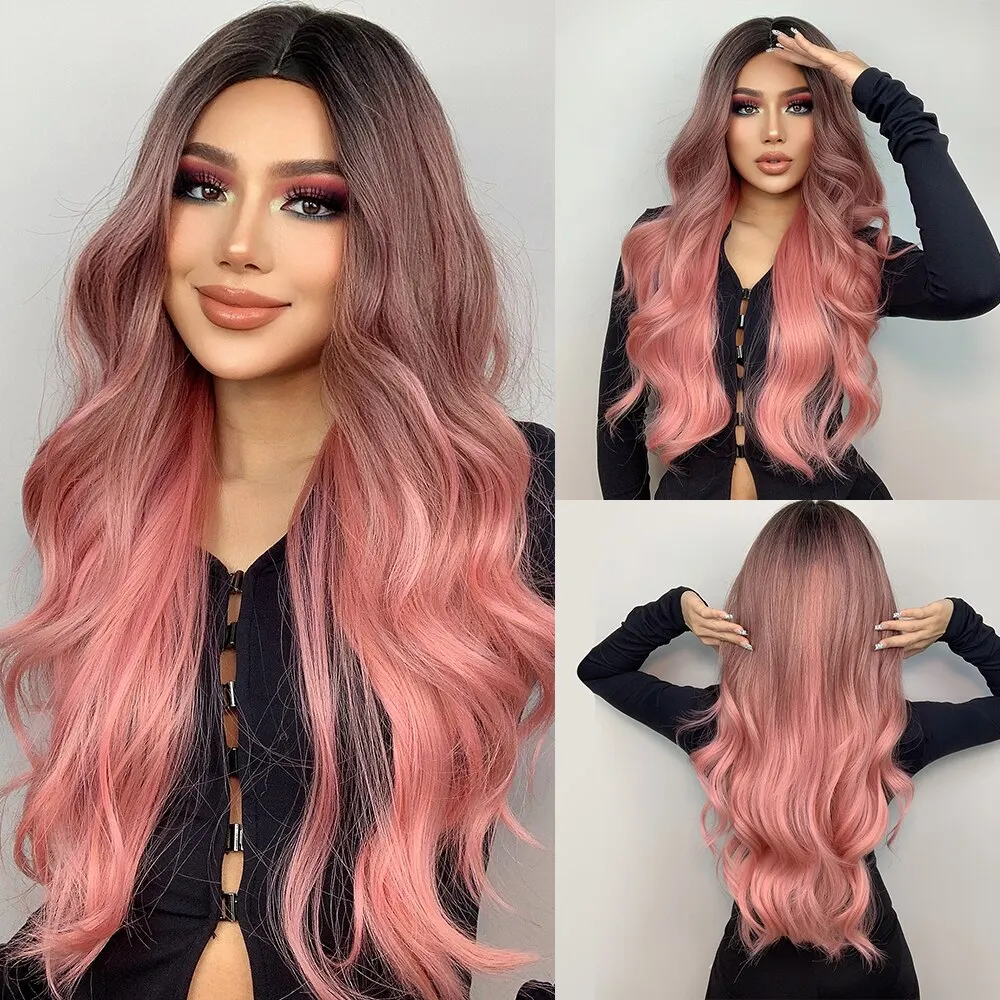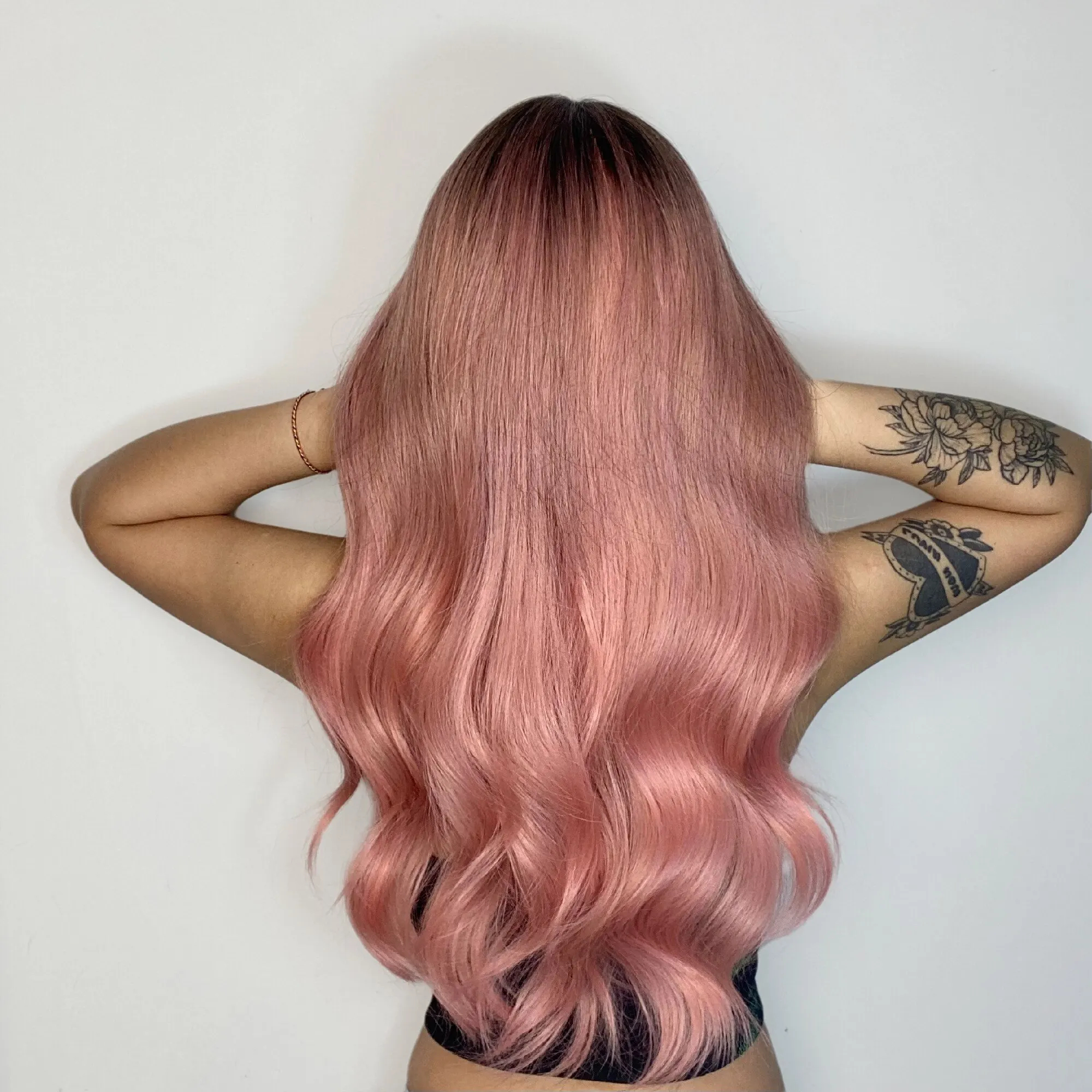Introduction:
Unveiling the Reality of Allergies to Synthetic Hair
Allergic to synthetic hair can pose challenges for individuals seeking to enhance their style with extensions, wigs, or other synthetic hair products. While synthetic hair is a popular choice for its affordability, versatility, and convenience, some people may experience allergic reactions when in contact with these synthetic fibers. In this article, we will delve into the causes, symptoms, and solutions related to allergies to synthetic hair, empowering readers to recognize and manage these reactions effectively.

The Rise of Synthetic Hair Allergies: Understanding the Root Causes
Allergic reactions to synthetic hair can stem from various factors, including the materials used in the production of synthetic fibers, such as acrylic, polyester, and nylon. These materials may contain chemicals, dyes, or coatings that can trigger sensitivities or allergic responses in some individuals. Additionally, the manufacturing process of synthetic hair products may introduce irritants or allergens that come into contact with the skin, leading to adverse reactions.
Recognizing Allergic Symptoms: Signs of Sensitivity to Synthetic Hair
Individuals with allergies to synthetic hair may experience a range of symptoms upon contact with these fibers. Common signs of sensitivity include itching, redness, swelling, rashes, and irritation on the scalp, neck, or other areas where the synthetic hair comes into direct contact with the skin. Some people may also develop hives, eczema flare-ups, or even blisters in severe cases of allergic reactions to synthetic hair.

Seeking Professional Guidance: Consulting a Dermatologist or Allergist
If you suspect that you have an allergy to synthetic hair or are experiencing persistent symptoms after using synthetic hair products, it is essential to consult a dermatologist or allergist for a proper diagnosis and treatment plan. These healthcare professionals can perform allergy tests, skin patch tests, or other assessments to identify the specific allergen causing your reaction and recommend appropriate measures to manage and alleviate your symptoms.
Mitigating Allergic Reactions: Tips for Managing Allergies to Synthetic Hair
Managing allergies to synthetic hair involves adopting preventive measures and making informed choices when selecting and using synthetic hair products. Here are some practical tips to help minimize allergic reactions and protect your skin from potential irritants:
Opt for Hypoallergenic Products: Choosing Safer Alternatives
When purchasing synthetic hair extensions, wigs, or accessories, look for hypoallergenic options that are free from harsh chemicals, fragrances, and additives that may trigger allergic responses. Selecting high-quality synthetic hair products made from skin-friendly materials can reduce the risk of irritation and sensitivity.

Perform Patch Tests: Testing for Sensitivities Before Full Application
Before applying synthetic hair products directly to your scalp or skin, conduct a patch test by applying a small amount of the product to a discreet area, such as the inner forearm. Monitor the area for any signs of redness, itching, or irritation for at least 24 hours to determine if you have any sensitivities to the product.
Maintain Proper Hygiene: Keeping Your Scalp and Hair Clean
Maintaining good hygiene practices, such as washing your scalp and hair regularly with mild, hypoallergenic shampoos and conditioners, can help remove any residues or allergens that may accumulate from synthetic hair products. Avoiding excessive sweating and buildup of product residue can reduce the likelihood of allergic reactions.
Consider Natural Alternatives: Exploring Organic and Plant-Based Options
For individuals prone to allergic reactions to synthetic hair, exploring natural alternatives such as human hair extensions, wigs made from organic materials, or plant-based hair accessories can be a safer and more skin-friendly choice. Natural hair products are less likely to contain synthetic chemicals or additives that can trigger allergies.

In conclusion, allergies to synthetic hair are a reality for some individuals, requiring awareness, caution, and proactive measures to manage and prevent adverse reactions. By understanding the causes, recognizing the symptoms, seeking professional guidance, and implementing practical strategies to mitigate allergic responses, individuals can enjoy the benefits of synthetic hair products without compromising their skin health and well-being. Whether through selecting hypoallergenic products, performing patch tests, maintaining proper hygiene, or exploring natural alternatives, there are various ways to navigate allergies to synthetic hair effectively and confidently.

Exploring Treatment Options: Addressing Allergic Reactions to Synthetic Hair
In addition to preventive measures and lifestyle adjustments, there are various treatment options available to address allergic reactions to synthetic hair. These interventions aim to alleviate symptoms, soothe irritated skin, and manage allergic responses effectively.
Topical Steroid Creams: Providing Relief for Skin Irritation
For individuals experiencing redness, itching, or inflammation due to allergic reactions to synthetic hair, dermatologists may recommend the use of topical steroid creams or ointments. These medications can help reduce swelling, relieve itching, and calm irritated skin, providing symptomatic relief.
Antihistamines: Managing Allergy Symptoms Systemically
Antihistamines, available in oral or topical forms, can be utilized to manage allergy symptoms triggered by contact with synthetic hair. These medications work by blocking the effects of histamine, a chemical released during allergic reactions, and can help alleviate itching, hives, and other allergic manifestations.
Moisturizers and Emollients: Hydrating and Nourishing the Skin
Using gentle moisturizers and emollients specifically formulated for sensitive or allergic-prone skin can help maintain the skin barrier, reduce dryness, and minimize discomfort associated with allergic reactions to synthetic hair. Regular application of these products can promote skin hydration and soothing effects.
Cool Compresses: Offering Comfort and Relief
Applying cool, damp compresses to areas affected by allergic skin reactions can provide soothing relief and help alleviate itching, redness, and swelling. Cool compresses can be particularly beneficial for managing acute allergic symptoms and promoting skin comfort.
Allergic to synthetic hair can extend beyond the physical realm and impact individuals emotionally and psychologically. Dealing with persistent discomfort, self-consciousness about visible skin reactions, and the need to modify beauty routines can lead to emotional stress and self-esteem challenges. It is important to acknowledge and address the psychological impact of allergies to synthetic hair, seeking support from healthcare professionals, counselors, or support groups if needed.
Empowering Education and Advocacy: Raising Awareness and Support
Raising awareness about allergies to synthetic hair and advocating for inclusive practices within the beauty and fashion industries are essential steps toward promoting understanding, accessibility, and support for individuals with sensitivities or allergies. By fostering open dialogue, sharing experiences, and promoting consumer rights, we can contribute to creating more inclusive and accommodating environments for individuals navigating allergies to synthetic hair.
Community Engagement: Building Supportive Networks
Engaging with online communities, forums, and social media platforms dedicated to discussions on allergies, skin sensitivities, and beauty inclusivity can provide valuable support, resources, and solidarity for individuals managing allergic reactions to synthetic hair. Connecting with others who share similar experiences can offer a sense of community and empowerment.
Advocacy Efforts: Promoting Allergy-Friendly Practices
Advocating for allergy-friendly product labeling, transparency in ingredient disclosure, and the development of hypoallergenic synthetic hair options can drive positive change within the beauty industry. By expressing consumer preferences and advocating for greater inclusivity, individuals can play a role in shaping a more accommodating and diverse marketplace.